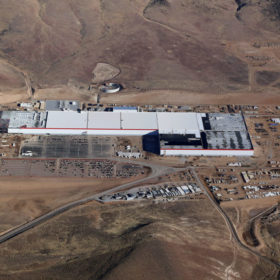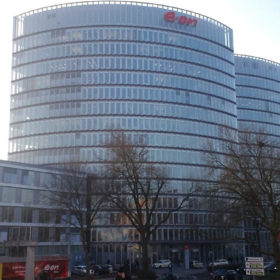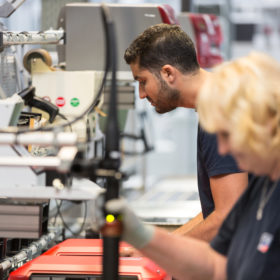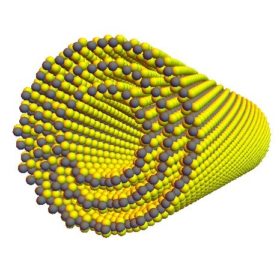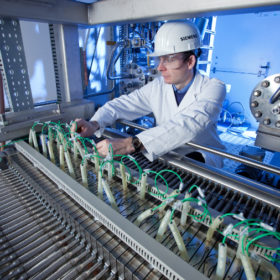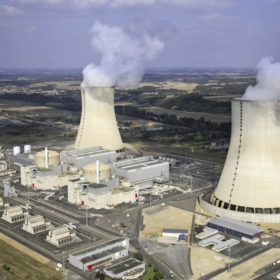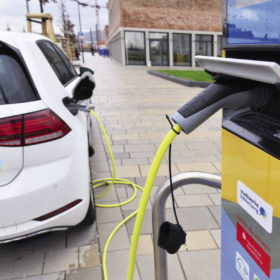Tesla to build first European gigafactory in Germany
Elon Musk has promised a fab near Berlin that will help create up to 10,000 new jobs. Tesla wants to build the facility near the city’s controversial new BER airport.
‘The world has no chance of beating climate change if natural gas is part of the mix’
A report by Germany’s Energy Watch Group thinktank has said we would be better off sticking to coal and oil than switching to gas because emissions of methane, the most potent greenhouse gas, caused by gas extraction render any related carbon savings irrelevant.
EU approves Eon’s bid to take over Innogy
It took a while, but now the energy giants can finalize the mega deal. Rival energy companies have criticized approval of the deal amid fears Eon could dominate the German market.
SMA: We can’t be credible if we’re not sustainable
Credibility comes not just from offering products that generate clean electricity, but also from the way in which those products are manufactured, says SMA Solar Technology CEO Jürgen Reinert. Here, transparency and sustainability are key. That’s why one of the world’s largest PV inverter producers has partnered with pv magazine’s UP sustainability initiative. In the following Q&A, Reinert lays out what SMA is doing to step UP its green game.
Scientists discover photovoltaic nanotubes
An international team of researchers led by the University of Tokyo has discovered a new material which, when rolled into a nanotube, generates an electric current if exposed to light. If magnified and scaled up, say the scientists, the technology could be used in future high-efficiency solar devices.
Shrimp and PV goes together like peas and carrots
With the benefits solar panels can bring to cropland being considered in Europe, PV and aquaculture are working in tandem in Vietnam. Shrimp and fish farming requires land and lots of water but solar panels are helping mitigate those demands.
A new spectroscopic method to understand the physical principles of organic PV
A German research team claims to have created a new visualization technique it says can enable detailed mapping of the energetic landscapes of organic PV cells on a nano scale. The technique could lead to organic cells with reduced power losses.
A close look at nature could lead to cheaper hydrogen
Scientists at the Australia National University have observed a key stage in the process of photosynthesis which could be copied to greatly increase the efficiency of sunlight-powered water splitting processes used to produce hydrogen.
Nuclear: A poor investment strategy for clean energy
Study claims that investment in a new 1GW nuclear power plant leads to average losses of approximately 4.8 billion euros. It further argues that the technology’s dangerous radioactivity emissions and proliferation risks do not qualify it as a ‘clean’ energy solution to be considered for addressing climate change. Yet still, governments are incorporating the technology into clean energy plans around the world.
Electric vehicles help slash payback periods for residential PV
The Institute for Energy Economics and Financial Analysis has estimated the effect on the payback period of PV systems when adding EVs and storage in Germany and Britain. In both cases, system owners are likely to reduce their payback period by significant margins as increased self-consumption can offset the incremental phase out of government incentives.
